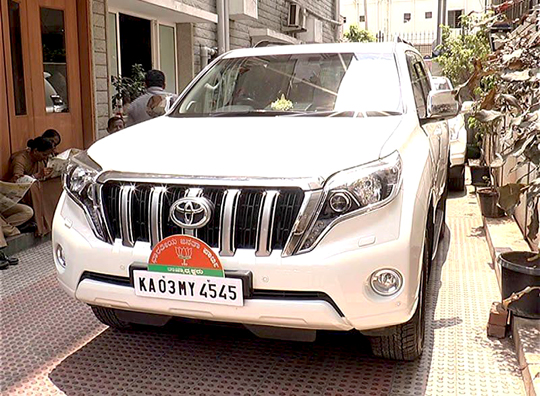Bengaluru, Apr 15: BS Yeddyurappa, BJP's Karnataka unit chief and its chief ministerial candidate for the state assembly elections scheduled in 2018, will head to drought-affected districts in a Rs 1-crore vehicle.

The Toyota Land Cruiser Prado was gifted to Yeddyurappa by former industries minister Murugesh R Nirani on his first day in office as state BJP president. The 2,982 cc SUV, adorned with a plaque, made its debut on Friday when Yeddyurappa used it to travel between his home and the party office. Excited BJP workers were seen taking selfies with the vehicle in the backdrop.
Party sources said Yeddyurappa will embark on the week-long tour to the drought-hit districts in the state on April 24. He can address crowds standing through the sunroof.
Justifying his scheduled travel, Yeddyurappa said, "What is wrong in using a luxury car to tour drought-affected areas? My former colleague Nirani has gifted the car..he felt it would provide me comfort and safety."




Comments
Here there are 3points.
1- Visiting famine area with Luxury style
2- Source of Gifting - The source of this car ?????
3- The beneficiary of this Gift. - Credibility of this person.
In BJP everything is possible, until we have majority of stupid and illiterate.
They will reign and enjoy until the above 2 sects last.
When it ceases, the God will take his own course.
Corruption started....first step....
A leader should be an example..
it is the ARROGANCE to use such expensive vehicle to visit the area where people are dying of THIRST.
I would request YEDDY to sell the VEHICLE and spend the money on PEOPLE rather than showing the ARROGANCE. and insulting people who are facing the troubles...
Add new comment